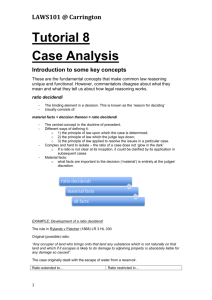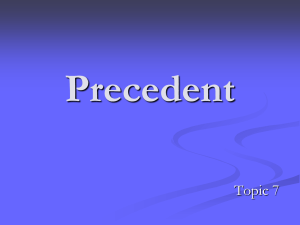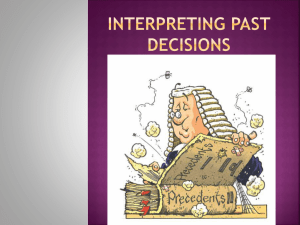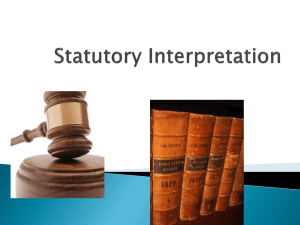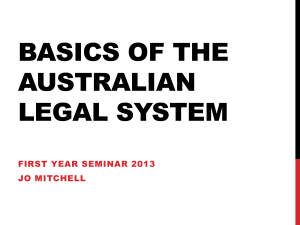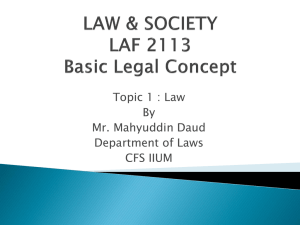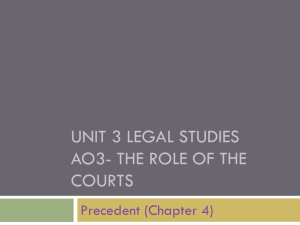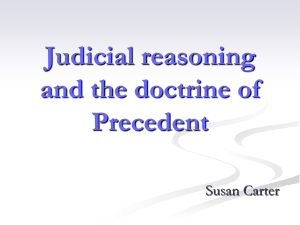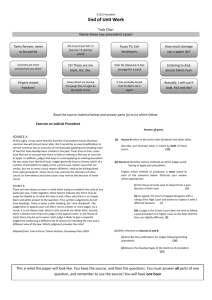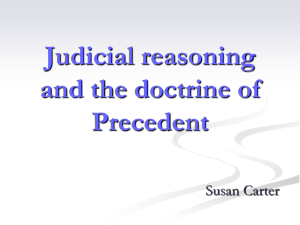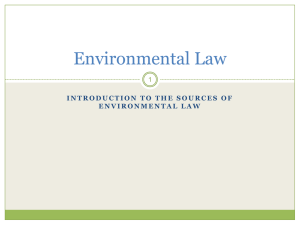Name: Date
advertisement
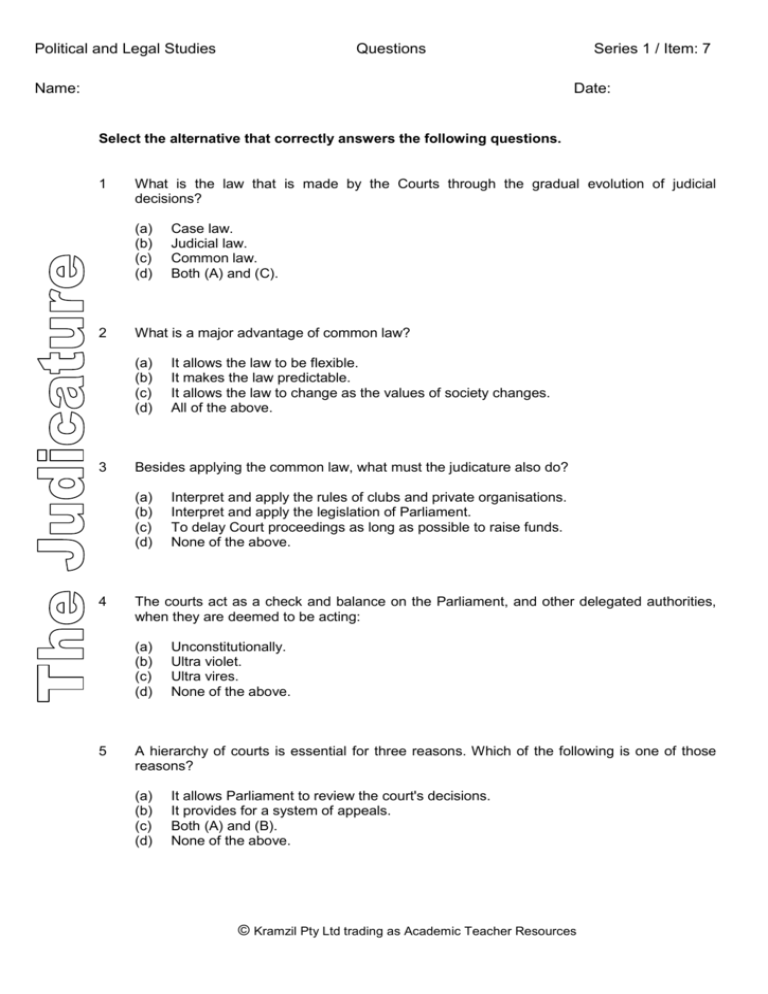
Political and Legal Studies Questions Name: Series 1 / Item: 7 Date: Select the alternative that correctly answers the following questions. 1 What is the law that is made by the Courts through the gradual evolution of judicial decisions? (a) (b) (c) (d) 2 What is a major advantage of common law? (a) (b) (c) (d) 3 Interpret and apply the rules of clubs and private organisations. Interpret and apply the legislation of Parliament. To delay Court proceedings as long as possible to raise funds. None of the above. The courts act as a check and balance on the Parliament, and other delegated authorities, when they are deemed to be acting: (a) (b) (c) (d) 5 It allows the law to be flexible. It makes the law predictable. It allows the law to change as the values of society changes. All of the above. Besides applying the common law, what must the judicature also do? (a) (b) (c) (d) 4 Case law. Judicial law. Common law. Both (A) and (C). Unconstitutionally. Ultra violet. Ultra vires. None of the above. A hierarchy of courts is essential for three reasons. Which of the following is one of those reasons? (a) (b) (c) (d) It allows Parliament to review the court's decisions. It provides for a system of appeals. Both (A) and (B). None of the above. © Kramzil Pty Ltd trading as Academic Teacher Resources Political and Legal Studies 6 (b) (c) (d) The overall consequences of a decision. A decision must inevitably be made one way or the other. The judge must weigh the arguments of both parties as fairly as he or she can. All of the above. Which of the following is a way in which a Court can avoid having to follow Precedent? (a) (b) (c) (d) 10 Only Obiter Dicta is binding on a Court. Only Ratio Decidendi is binding on a Court. Both Ratio Decidendi and Obiter Dicta is binding on a Court. None of the above. Which of the following is considered to be a problem associated with interpreting legislation? (a) (b) (c) (d) 9 To stand by what has been decided, meaning that Courts must base their judgements in accordance with previous, similar decisions. To stand by the personal values and moral of a particular judge. To stare at the defendant when handing down a verdict. None of the above. What is the difference between Ratio Decidendi and Obiter Dicta? (a) (b) (c) (d) 8 Series 1 / Item: 7 What does ‘Stare Decisis’ mean? (a) 7 Questions There are no ways to avoid having to follow Precedent. Overruling a Precedent. Distinguishing the case. Both (B) and (C). Which of the following is not a reason as to why Courts need to interpret Statutes: (a) (b) (c) (d) There may have been drafting problems with a Bill, resulting in ambiguous legislation. As there is a myriad of legislation, certain Acts could be found to contradict or be inconsistent with each other. A Court may have to decide on the meaning of words or phrases due to unclear or absent definitions. None of the above. © Kramzil Pty Ltd trading as Academic Teacher Resources Political and Legal Studies Questions Series 1 / Item: 7 True / False 1 Depending on what legal maxim is used, interpretation of legislation can vary quite easily. 2 The mischief rule is the last maxim available to judges when the use of others would result in an absurd or unjust results. 3 The judicature are only concerned with applying the common law, not legislation passed by Parliament. 4 If the Parliament passes a law that is in violation of the Constitution, the courts are unable to do anything but enforce it. 5 Disapproving a precedent is a useful tactic for judges in the lower end of the court hierarchy when trying to overcome precedent. 6 Ratio decidendi and obiter dicta are both binding on a Court. 7 Decisions from superior courts in a different hierarchy are still binding. 8 A Court can disapprove of a Precedent set by a higher court to avoid having to follow Precedent. 9 The Parliament has enacted legislation to help the courts in the interpretation of their Acts. 10 Judicial legalism argues that courts should merely enforce the laws of Parliament with no regard to the changing values in society. © Kramzil Pty Ltd trading as Academic Teacher Resources Political and Legal Studies Questions Series 1 / Item: 7 Match the Word to the Statement A - Ultra Vires E - Same B - Literal F - Maxims C - Lower G - Presumption D - Golden H - Legalism 1 ____ A Court can only Disapprove of a Precedent if that decision was made at the _______ or lower level in the hierarchy. 2 ____ A _________ is a conclusion that the courts will reach unless there is evidence to the contrary. 3 ____ If the Parliament, or other delegated body, is acting unconstitutionally they are said to be acting _________. 4 ____ A Court can only Reverse a Precedent if that decision was made in a ________ level in the hierarchy. 5 ____ The _________ rule requires that the courts interpret a word literally as if it is unambiguous. 6 ____ Ejusdem generis and noscitur a sociis are examples of legal ________. 7 ____ The _________ rule empowers a court to construe a word to overcome any absurdity or injustice. 8 ____ Judicial _________ proposes that courts should simply apply the laws of Parliament without question with regards to society’s values. © Kramzil Pty Ltd trading as Academic Teacher Resources
